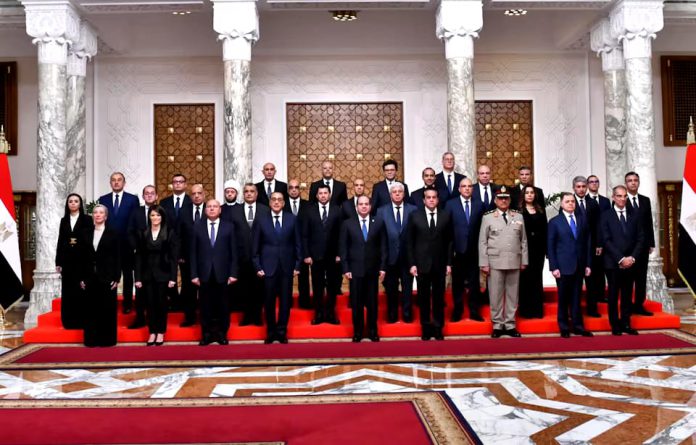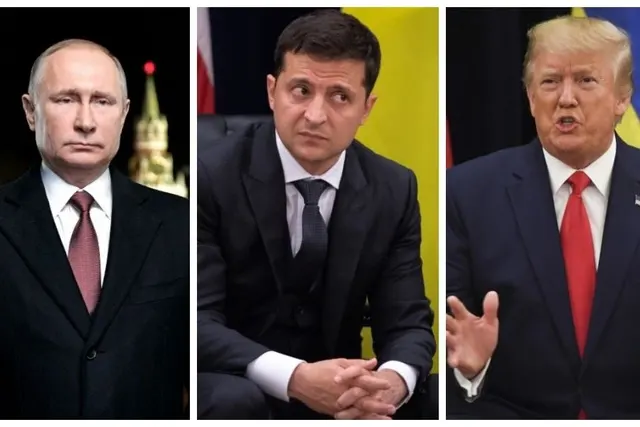Egyptian President Abdel Fattah al-Sisi on Wednesday in Cairo swore in a heavily reshuffled cabinet as the country faced an ailing economy and raging conflicts in neighbouring nations.
The new Cabinet, chaired by Prime Minister Mustafa Madbouly, who has been in office since 2018, included major changes, particularly in the defence and economy-related portfolios.
Some ministers, including those in charge of police, health and transportation, remain in place.
The change comes as the country faces mounting public discontent following years of economic mismanagement, the coronavirus pandemic and the fallout of the wars in Europe and the Middle East.
A Western-backed reform programme – adopted in 2016 and backed by President Abdel Fattah el-Sissi – has caused prices to soar due to austerity measures. Nearly 30% of Egyptians currently live in poverty, according to official figures.
Mohamed Maait, the country’s finance minister since 2018, was replaced by his deputy Ahmed Kouchouk, a former World Bank economist who played a major role in implementing a reform programme with the International Monetary Fund.
Earlier this year, the government floated the pound and sharply increased the main interest rate.
Commercial banks are now trading the U.S. currency at more than 47 pounds, up from about 31 pounds. The measures are meant to combat ballooning inflation and attract foreign investment.
This comes as attacks by Yemen’s Houthis on shipping routes in the Red Sea have slashed Suez Canal revenues.
Egypt has been struggling to revive the lucrative tourism sector decimated by years of turmoil, the pandemic and most recently war in Europe and the Middle East.
In the new Cabinet, Sherif Fathy, a former civil aviation minister, replaced Ahmed Issa as Tourism and Antiquities Minister in the new government.
Another main point of contention is the recurring power cuts during the soaring heat of summer in the country of over 106 million people.
Consequently, Mahmoud Esmat was named to oversee the electricity ministry.
As conflicts rage in Gaza, Libya and Sudan a key portfolio of Egyptian diplomatic leadership is the foreign ministry.
Badr Abdelatty, who has acted as Egypt’s envoy to European countries including Germany and Belgium, has been named Foreign and Migration Minister.
The 58-year-old diplomat replaced Sameh Shoukry, 72, who led the country’s diplomacy for the past decade.
Also, General Abdel-Majeed Sakr replaced Gen. Mohamed Zaki who was on top of the defence portfolio since June 2018.
The ministers, their deputies, and provincial governors took the oath in a presidential palace in Cairo before el-Sissi, elected in December for a third six-year term.
The new Cabinet includes four women and several technocrats. It comes three months after el-Sissi was sworn in for his third term.
The former defence minister was first elected president in mid-2014 and then re-elected in 2018.
A year later, constitutional amendments, passed in a general referendum, added two years to el-Sissi’s second term and allowed him to run for a third, six-year term.












